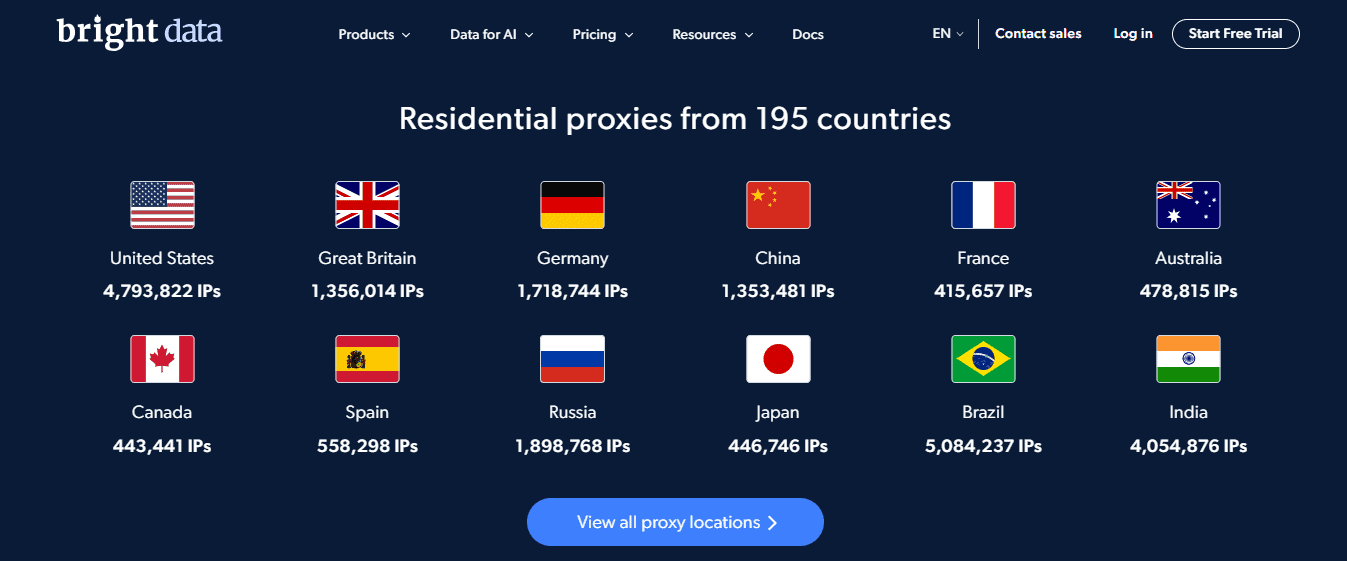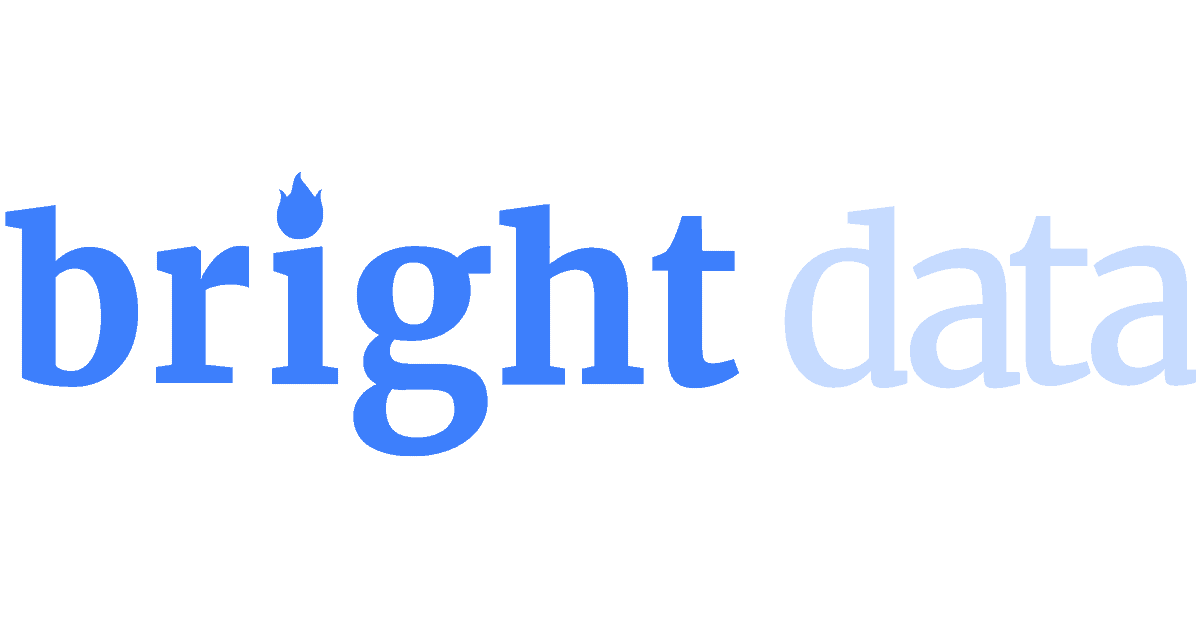Last Updated on September 12, 2025 by Ewen Finser
In my time as a tech journalist and consultant, I’ve had to test multiple proxy servers for cybersecurity research and data collection projects. That’s how I know how critical a residential proxy can be.
As most people know, they operate differently from data center proxies, as they route traffic through real IP addresses assigned by ISPs to people’s homes. This makes them much more difficult to detect, as well as significantly better at bypassing geo-restrictions and anti-bot scripts.
That said, over the years, I’ve found that not all residential proxies providers are made equal. This is why you need to think carefully about which one to choose before starting your project.
Bottom Line Up Front
I’m not here to waste your time. If you’re looking for a quick answer, then based on my testing across multiple criteria, I’d say that Bright Data is currently the best proxy provider.
I was first drawn to the company as it had a huge customer base (+20,000), including some Fortune 500 companies. This enterprise-based approach, combined with its advanced targeting abilities, make it my top recommendation if you need professional-grade residential proxy services.
Naturally, there are other providers out there, and in this guide, I’ve listed some that I feel might be a better fit based on specific use cases, e.g., companies on a tight budget. Read on to discover why I feel Bright Data is the best offering, as well as to learn more about the alternatives available.
Best Residential Proxies: Top 5 Providers
1. Bright Data
Pros:
- +150 million IPs across 195 countries.
- Its SLA guarantees 99.99% uptime.
- The integrated ‘Proxy Manager’ is very sophisticated and can save you hours of configuration time.
- Free geo-targeting (country, city, ZIP code, ASN) worked perfectly in my tests.
- Has Fortune 500 clients.
- Excellent API integration with existing workflows.
Whenever I need to grab structured web data, real-time or historical, I use Bright Data. It makes it easy to pull info from public websites at scale, and it fits right into whatever AI model or workflow I’m working on. Fast, flexible, and super reliable.
Cons:
- Not the cheapest option. Pay-as-you-go pricing for residential proxies is $4.20/GB.
- You may have to register with a company email.
As I outlined above, of all the proxy providers I’ve reviewed, Bright Data represents the gold standard.
While I was initially lured in by its big-name clients, I was also impressed by the provider’s commitment to sourcing residential proxies ethically. The site actually has a checklist of criteria for this, including making sure that the owner is properly compensated, as well as being GDPR/CCPA compliant.
Bright Data’s ‘Proxy Manager’ also deserves special mention, as aside from being open source, it also lets you manage all your proxies from a single interface. Admittedly, most proxy providers offer some kind of centralized dashboard, but this one can save you some serious time when it comes to configuration. Features like allow lists and geo targeting can all be managed with a few mouse clicks.
When I first registered with Bright Data, I had to provide a company email. This was an issue, as at the time I was still using a free email address. However, this shouldn’t be an issue if you’re acting directly on behalf of your business. I also see from looking at the site that these days you can sign in with a Google or GitHub account.
Naturally, an intuitive interface, powerful API, and extensive global infrastructure don’t come cheap, so you can expect to pay more for Bright Data than for your average residential proxy providers. That said, there’s currently a special 50% discount on residential proxy plans, plus there’s a free trial for testing purposes.
Read our full Bright Data Review here!
2. OxyLabs
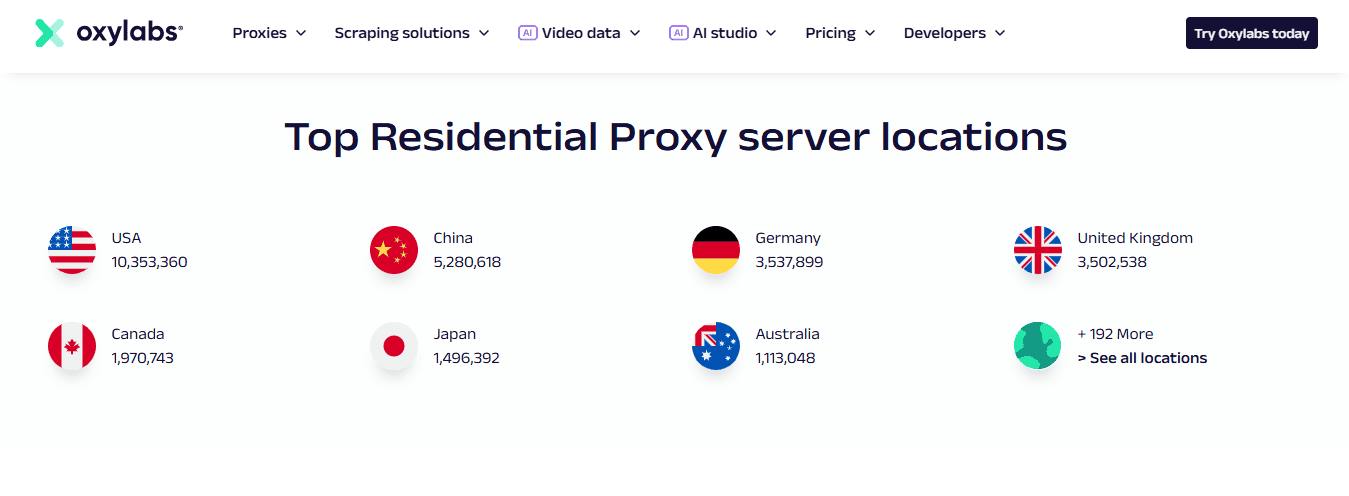
Pros
- +175 million proxies in 195 countries.
- In speed tests, I clocked 0.6s response times.
- Lives up to its claimed success rate (99.95%).
- Offer ZIP code precision targeting.
- Its ‘Web Unlocker’ is ideal for complex scraping tasks.
- Its sticky sessions for residential proxies of up to 30 minutes are stable throughout.
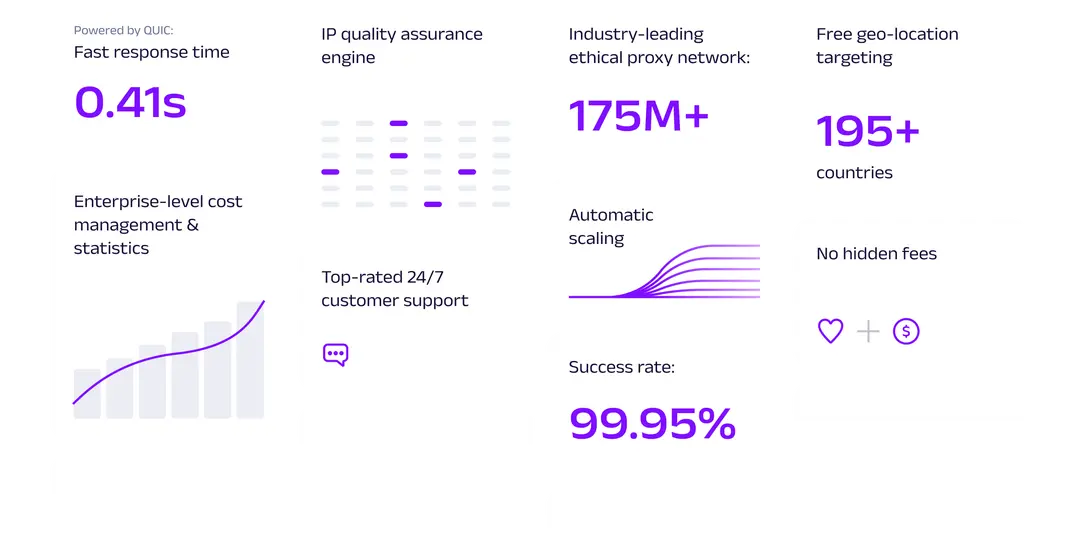
Cons
- Standard pay-as-you-go pricing of $8/GB for residential proxies is expensive for smaller projects.
- I found the platform had a steeper learning curve than I expected.
If you have the budget for it, then Oxylabs really excels when it comes to performance. Having complained about the pricing above, the provider is currently offering a 50% discount for six months on residential proxies. That puts the PAYG price at $4/GB, which is on a par with other premium proxy providers like Bright Data.
OxyLabs saved my life a couple of years ago when my client had a series of complex data collection tasks. Its AI-powered “Web Unlocker’ can automatically manage multiple scraping processes like browser fingerprint generation and automatic retries, which saved us a huge amount of time and trouble. I also took the liberty of testing response times for residential proxies, and while they didn’t quite live up to the marketing claim of 0.41s, I felt 0.6s was very respectable.
You may wonder why, with so many strings to OxyLabs’ bow, I haven’t recommended it as the top pick when it comes to residential proxy providers? Aside from the steep price, I found the dashboard a little too much at first. There were limited tool tips, and the interface felt cluttered overall. It took a while to set up the proxies, too, though once we did, we made up the lost time with the Web Unlocker.
3. IPRoyal
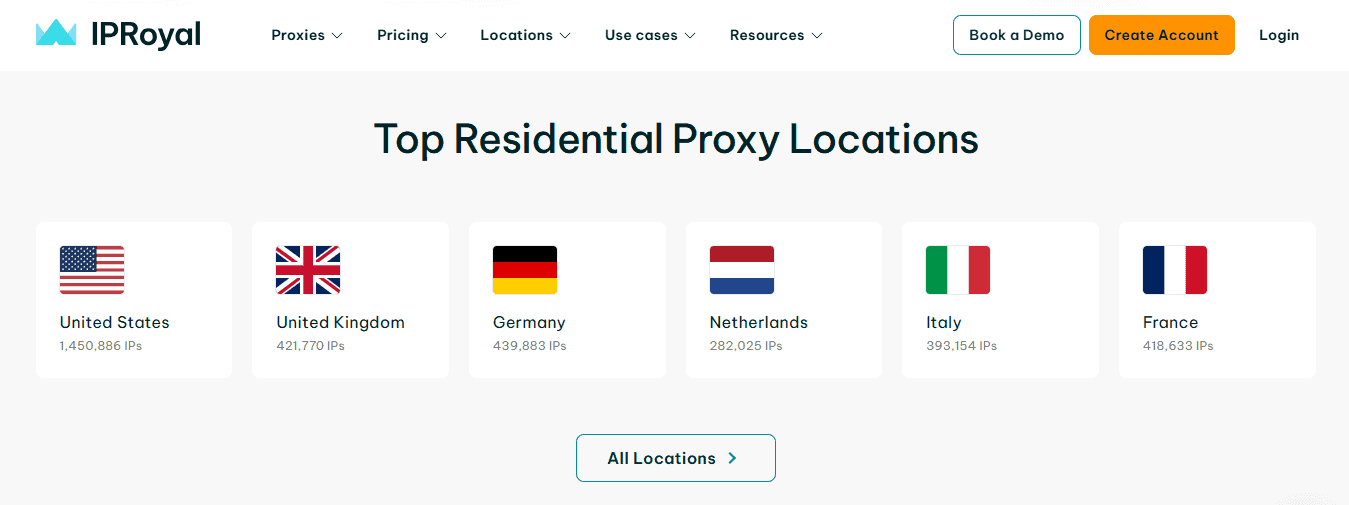
Pros:
- At $2.57 GB for 50 GB (PAYG), this provider offered genuine value during my tests.
- The +32 million genuine residential IPs are adequate for smaller projects.
- I found the ‘Traffic never expires’ feature useful for intermittent operations.
- Sticky sessions can last up to seven days (confirmed in my tests).
- 99.9% uptime
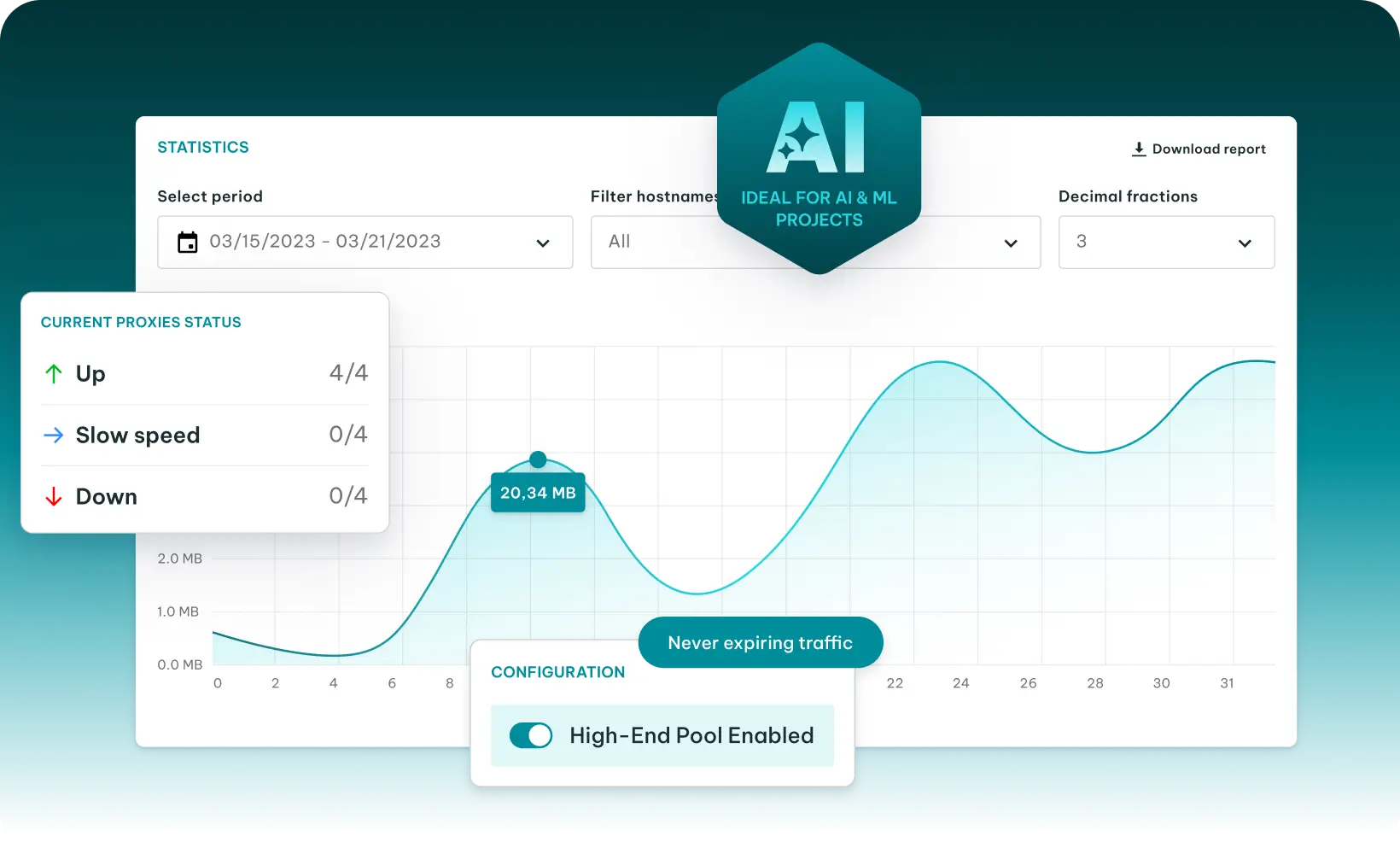
Cons:
- The smaller IP tool results in more limited targeting options relative to competitors.
- No free trial for residential proxies.
- Basic feature set compared to premium offerings.
Of all the proxy providers I’ve encountered, I can safely say that IPRoyal offers the best value for money.
After registering, I noted that the price you pay per GB (both for subscriptions and ‘pay as you ‘go) is determined by IPRoyal’s volume discounts. For example, you can pay
$5.15 per GB for 50 GB, which represents a 30% discount from IPRoyal’s standard rates. Better yet, the provider is currently offering a 50% discount on its rates, so this comes down to $2.57.
Subscribers also get a further 5% off, plus accessing to ‘high-end IPs’ and supposedly better customer support. I followed the PAYG model, so encourage you to research the subscription features if this interests you before buying. This is important, as there’s no free trial for IPRoyal features. As such, I recommend buying a small amount of data at first to test out the platform, as I did.
Once I was up and running, though, I found IPRoyal to be ideal for smaller-scale projects. The interface is easy to use. After doing more research, I also discovered that the provider offers a residential proxy network through an app called Pawns. This provides a better guarantee that the proxies are sourced ethically, as clients must install the software on their machines.
Although the IP pool is more limited relative to premium providers like OxyLabs and Bright Data, IPRoyal does offer targeting by country, region, or city. You can deploy ISP targeting, though in that case, I had to contact the provider to enable it for me.
4. SOAX
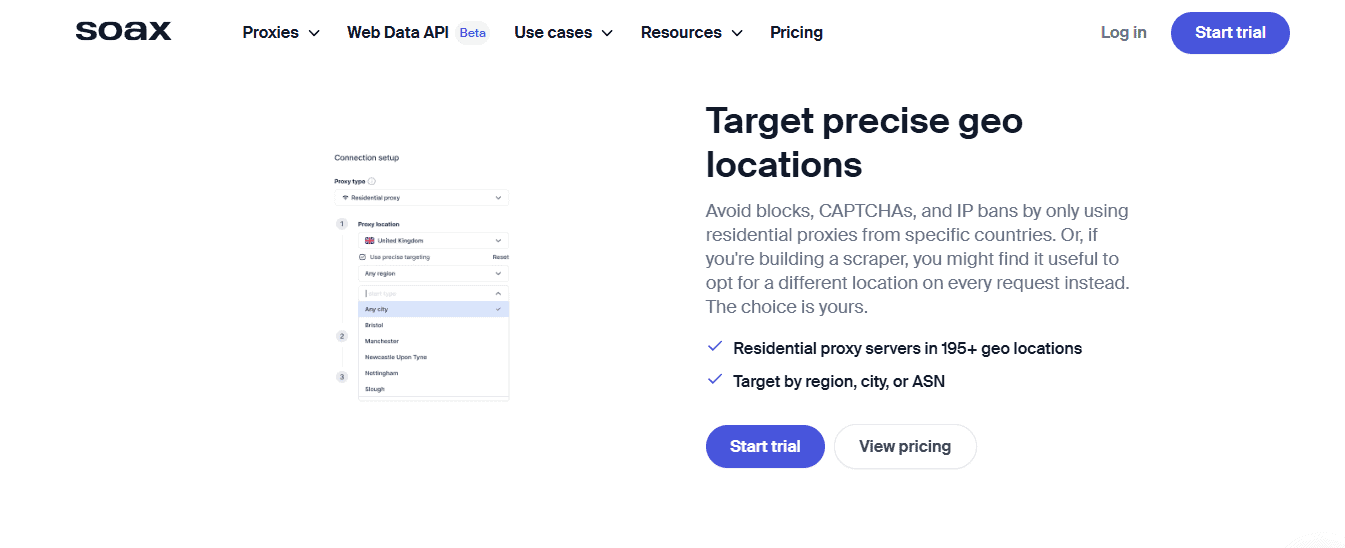
Pros
- +155 million residential IPs
- Geo-targeting with city and ASN filtering works as advertised
- 24/7 live chat responds quickly and helpfully
- Can rotate IPs on every request or keep them for longer
- Plan start from $2/GB for an 800 GB monthly subscription
- 3-day 400 MB trial for $1.99
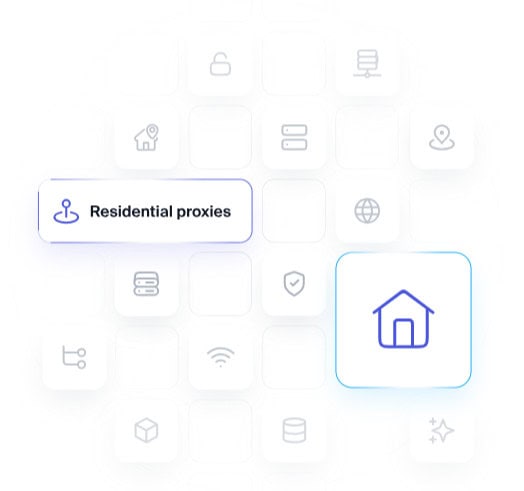
Cons
- Proxy management tools are limited compared to top providers
- Monthly billing means no annual discounts
- Shorter track record (SOAX was founded in 2020)
From what I’ve seen, SOAX occupies the middle ground between budget and premium services.
I took advantage of the $1.99 trial to test it out and found that the geo-targeting works down to the city and ISP level, and the IP pool is a respectable size. The interface is easy to manage, and I particularly liked the simple drop-down menus, from which you can choose to rotate IP addresses for each new request or configure sticky sessions for a fixed length of time.
You can also do this with a custom string using the ‘sessionlength’ parameter. Although the help page is very comprehensive, I had to contact support for assistance with this, as I was trying to set up a session for ‘New York’, which contained a space. Pro tip: insert ‘%20’ between words.
Pricing is also fairly flexible, but if you want to pay $2 GB for 800 GB, you’ll need a monthly subscription, i.e. $1600 per month. You can also pay $4/GB on a ‘pay as you go’ basis.
5. NetNut
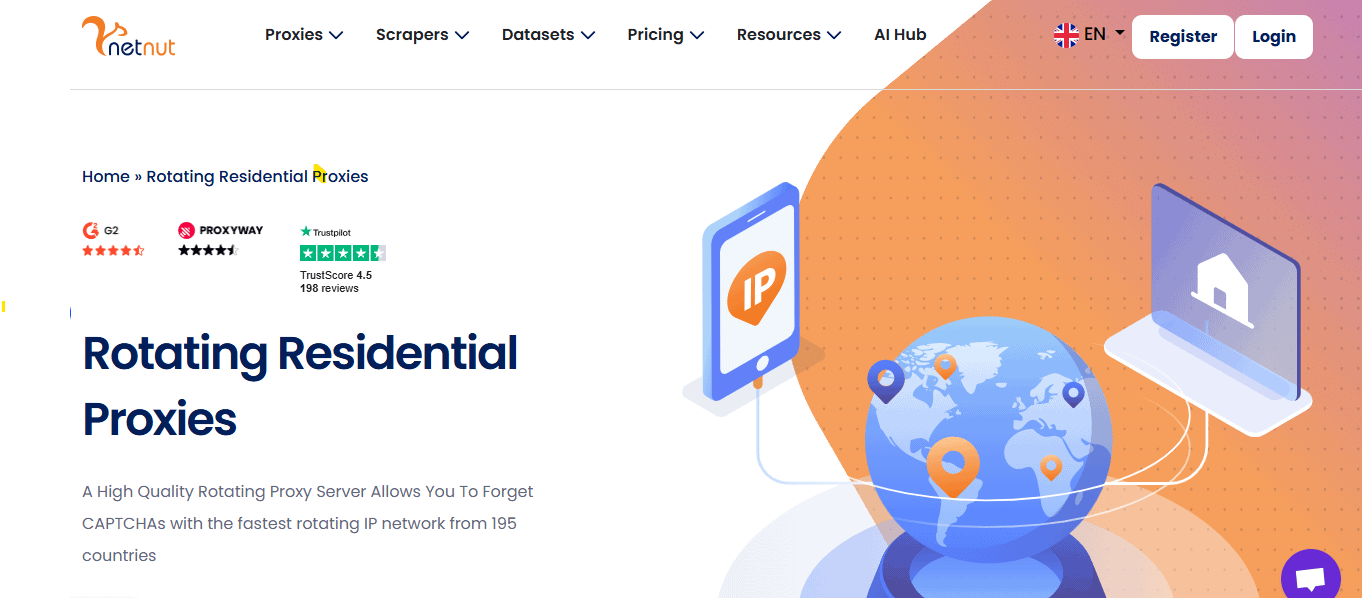
Pros
- +85 million residential IPs across 195 countries.
- Offers bulk pricing for enterprise-scale projects.
- Its proxy servers offer unlimited concurrent connections
- The 7-day free trial for businesses lets you test at scale
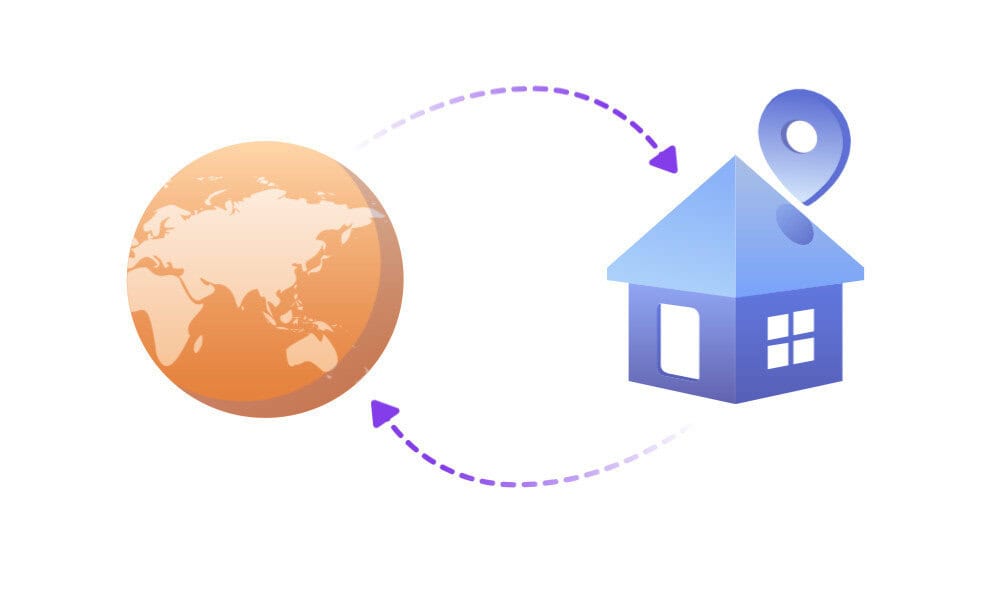
Cons
- The lowest-priced plan costs $99 per month. I also found the pricing structure complicated.
- No pay-as-you-go option.
When it comes to high-volume operations, NetNut is an excellent choice. In these situations, it makes perfect sense to pay the minimum of $99 for 28 GB per month ($3.53/GB), and enjoy the unlimited concurrent connections offered by the provider’s proxy servers.
However, if you’re running a smaller-scale project, you may not want to commit to such a large sum upfront. This was the decision my client made after we availed of the 7-day free trial. I also found the pricing page overwhelming, as you’ll pay different amounts depending on your monthly subscription, and whether you need static or rotating residential proxies. There’s no PAYG option either. Still, NetNut can be a wise choice for enterprise-level work.
Top mistakes I’ve seen (and made) when choosing residential proxies
1. Chasing the bottom dollar over quality
When I was starting out, I often recommended the lowest-cost providers available to clients to save a fast buck. I can’t emphasize enough how much of a rookie error this was. Cheap proxies often inhabit shared infrastructure, unreliable connections, and the IP quality is often so poor, you’ll likely start seeing bans in the first few hours. Focus on providers with solid track records, high success rates, and ethical sourcing practices before you consider their costs.
2. Underestimating IP pool size and diversity
Another rookie mistake I’ve made, which I hope you will avoid. Websites can easily identify and block limited IP ranges, so if you go for a provider with a limited pool of residential proxies, then you risk derailing the whole project. Make sure that your chosen provider offers millions of diverse IPs from subnets and ISPs, as well as substantial coverage in your required geographic regions.
3. Settling for basic geo-targeting
Basic country-level targeting is likely to be unsuitable for anything but the simplest of projects. I’ve learned to prioritize those providers that city, state, ZIP code, and ASN-level targeting for fine-tuned location simulation. Poor targeting won’t only reduce the effectiveness of location-based tasks – it can also slow speeds due to unnecessary rerouting.
4. Skipping proper testing
Most people who’ve worked with proxies have committed the cardinal sin of scaling up too quickly without running thorough tests first. The best solution to this is to take advantage of free trials or make small test purchases before committing to large projects.
5. Ignoring ethical sourcing practices
This is a major concern when deploying residential proxies, as if the provider uses questionable ‘recruiting’ practices, it can expose you or your client to legal and compliance risks. Check your provider’s policies carefully to make sure they obtain users’ consent and compensate them fairly for use of their infrastructure. Reputable residential proxy services should also be able to demonstrate how they’re compliant with local data protection laws like GDPR and CCPA.
My Final Recommendation
After testing various residential proxy services on behalf of clients and for journalism projects, I stand by my original assessment that Bright Data is a clear leader.
As I said, I was first drawn to it because the provider claims Fortune 500 enterprises in its client list. But aside from that, Bright Data has one the largest residential proxy networks in the entire industry. This makes precise geo-targeting and high success rates all but guaranteed.
The provider also sources residential proxies ethically and has detailed information about compliance requirements, making it perfect for enterprise-grade projects.
This said, the best residential proxy provider will always depend on your project scope, requirements, budget, and your personal preferences.
Whenever I need to grab structured web data, real-time or historical, I use Bright Data. It makes it easy to pull info from public websites at scale, and it fits right into whatever AI model or workflow I’m working on. Fast, flexible, and super reliable.
For instance, if you’re engaging in complex data-collection tasks, then Oxylabs offers advanced proxy features at ultra-high speeds. If you’re on a budget, then IPRoyal offers excellent value for money and reasonable performance for smaller operations.
If you’re searching for a good all-rounder (if not the best), then SOAX offers a solid balance between features and affordability. I’ve found it useful for those times a client has needed certain professional features, without paying full enterprise costs. For large-scale operations, I’ve found NetNut to be a strong contender, as it offers direct ISP connections and bulk pricing.
Remember, the key to choosing the right residential proxy provider is to avoid the typical mistakes that most people make. These can include valuing price over quality, ignoring IP diversity, and insufficient testing.
Instead, focus on those providers that have proven performance metrics, comprehensive geographic coverage, and ethical sourcing practices.
I can tell you from experience that choosing a quality proxy service like this will pay for itself several times over with better success rates, less blocking, and improved data collection.


